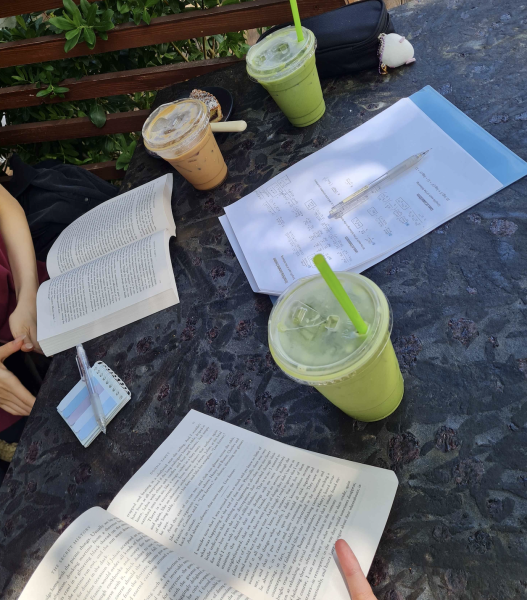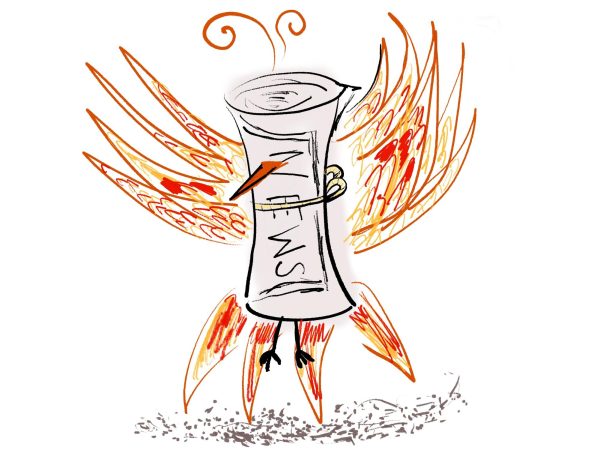Snowflakes
Fragile mindsets are lowering our educational standards
In 2016, the Collins English Dictionary selected “snowflake generation” to be one of its words of the year, categorizing “the young adults of the 2010s as being less resilient and more prone to taking offence than previous generations.” Now, a little less than a decade later, this phrase is still relevant in our current society.
Everyone needs an older sibling. We’re not only here to be a mentor through all of your ups and downs, but we’re also here to introduce you to the harsh realities of life. For as long as I can remember, I’ve been completely honest with my younger sister, not filtering my constructive feedback. And at this point, I’m proud to announce that Alexa Chan has grown a thicker skin and will not be categorized as a “snowflake” when she leaves the safety of our home. She’ll be indestructible.
But not everyone has grown up with such mentorship. Instead, many have the mindsets of being a special snowflake: less resilient, more fragile. And our educational systems have responded by lowering their standards.
The news of the firing of renowned New York University (NYU) chemistry professor Dr. Maitland Jones Jr. after a succession of student complaints about his teaching in August of this year shocked me. Jill Filipovic, a journalist, author, and lawyer based in New York, put it best: “Are academic standards dropping? Are professors and administrators too beholden to students’ fragile emotions? And what’s wrong with kids these days, anyway?”
According to NBC New York, “more than 80 of his 350 students signed a petition claiming Jones was responsible for his failing grades.” There are two main issues with this statement. For one, 80 students doesn’t even make up 25% of Jones’s total students. The fact that only 22% of his 350 students could get him fired because the class was too hard is concerning.
As students at an academically rigorous school, we understand more than anyone that some subjects are really hard. But for the most part, we also understand that our difficult classes will set us up for success in the future. Julia Ralph (‘17) said, “Many of my English courses, particularly American Studies, required me to think more critically than ever before. I felt like most of my small discussions around a table in high school were more profound than any of them I had in college.”
Furthermore, there could be countless future repercussions for this decision. NYU is a prestigious university — will other college students around the country think that they’ll obtain the same results? Will academic standards become more lenient? And especially in the science department, what does this mean for our medical students in the future? According to Swarthmore College, medical schools look closely at a student’s organic chemistry grades when considering them for admission into the school. Will our medical standards as a nation drop? I really hope not.
It’s not just university-level education standards dropping, however. These changes are occurring for students as young as in elementary and middle school because the gifted and talented program (GATE) — an educational system that provides academically advanced students with a faster learning track — has come under attack.
According to Frederick Hess, a senior contributor for Forbes and a Director of Education policy studies at the American Enterprise Institute, there have been big policy changes in California specifically. “Earlier this year, California’s Instructional Quality Commission adopted a new mathematics framework that urges schools to do away with accelerated math in grades one through 10,” he wrote.
A similar decision was made around the same time by the New York City Department of Education. “We will spend the next year engaging communities around what kind of programming they would like to see that is more inclusive, enriching, and truly supports the needs of academically advanced and diversely talented students at a more appropriate age,” NYC Department of Education spokeswoman Miranda Barbot told Spectrum News New York 1.
On the surface, both of these decisions sound reasonable. But when further analyzed, this decision could prove to bring much more harm than good. It injures students — especially those from low-income households — by eliminating a great opportunity to get ahead.
In a New York Post article, Sean-Michael Pigeon, a current Yale undergraduate student, explained that because he grew up in a single-income household, he didn’t have the opportunities to gain credentials like practicing an instrument, playing sports, or working as an intern. “I could study, though,” he explained. “Testing and academic performance were the best way for someone like me to succeed.” Disposing of a system out of fear that some children may feel embarrassed or disappointed with their own academic ability is simply not a good enough of an excuse. This system serves as a giant opportunity for many others to be exposed to a higher level of education.
So how will society save itself from this growing avalanche before it’s too late? Like any large issue, it’s complicated. But a good first step is for us all to reconsider what the effects of oversensitivity may be.

Sydney Chan is an Editor-in-Chief for The Tower dedicated to discovering unique stories and bringing them to life through her pieces. She especially loves...












